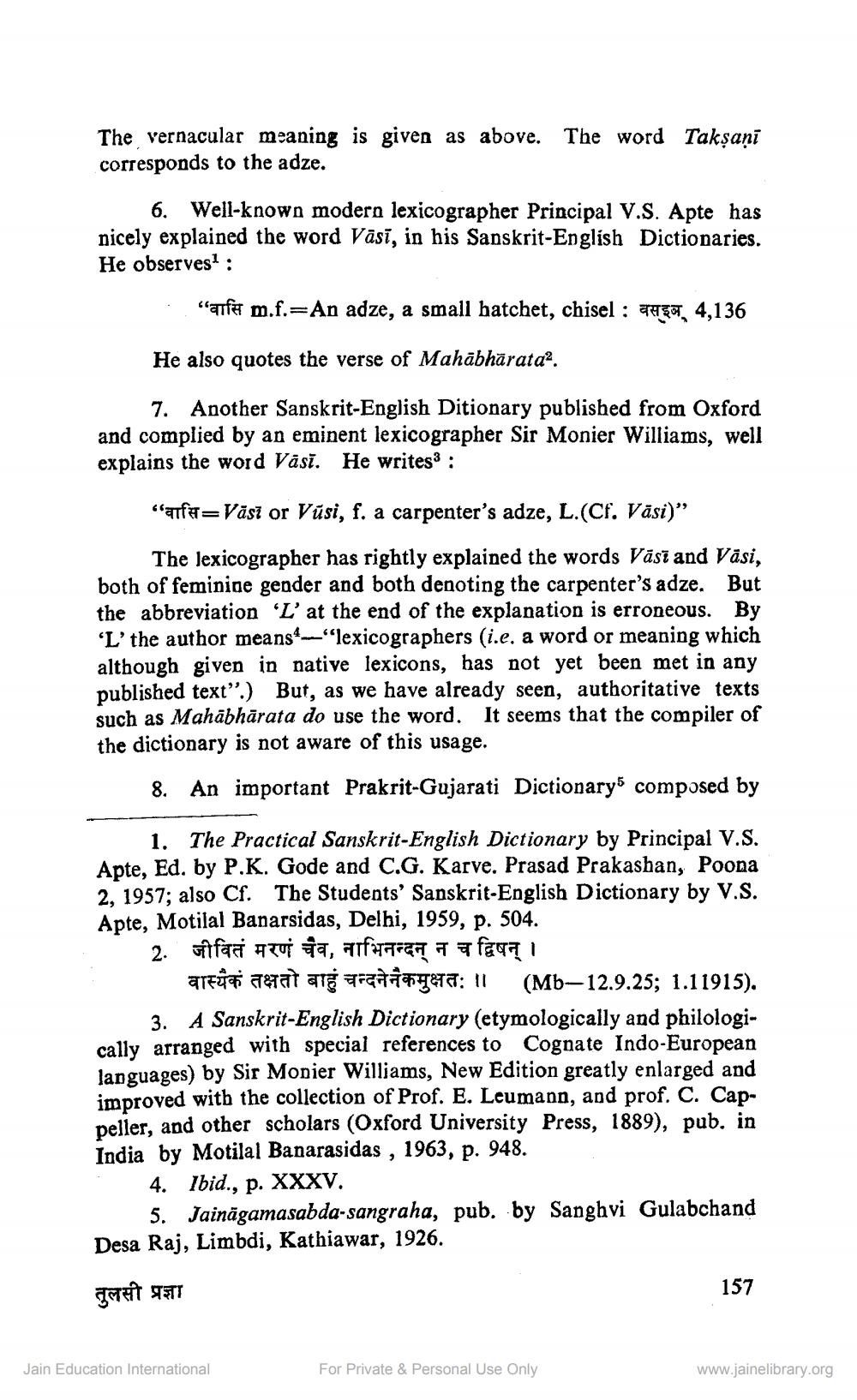________________
The vernacular meaning is given as above. The word corresponds to the adze.
Takşaņī
6. Well-known modern lexicographer Principal V.S. Apte has nicely explained the word Vāsī, in his Sanskrit-English Dictionaries. He observes :
.."afe m.f.=An adze, a small batchet, chisel : 4484 4,136
He also quotes the verse of Mahābhārata2.
7. Another Sanskrit-English Ditionary published from Oxford and complied by an eminent lexicographer Sir Monier Williams, well explains the word Väsi. He writes :
cafe=Vāsi or Vũsi, f. a carpenter's adze, L.(Cf. Väsi)"
The lexicographer has rightly explained the words Väsī and Väsi, both of feminine gender and both denoting the carpenter's adze. But the abbreviation 'L' at the end of the explanation is erroneous. By 'L' the author meanslexicographers (i.e. a word or meaning which although given in native lexicons, has not yet been met in any published text".) But, as we have already seen, authoritative texts such as Mahābhārata do use the word. It seems that the compiler of the dictionary is not aware of this usage.
8. An important Prakrit-Gujarati Dictionarys composed by
1. The Practical Sanskrit-English Dictionary by Principal V.S. Apte, Ed. by P.K. Gode and C.G. Karve. Prasad Prakashan, Poona 2, 1957; also Cf. The Students' Sanskrit-English Dictionary by V.S. Apte, Motilal Banarsidas, Delhi, 1959, p. 504. 2. olfacti a cui ta, arfare a ferai
arruf Tepat ar arat a : 11 (M6–12.9.25; 1.11915).
3. A Sanskrit-English Dictionary (etymologically and philologically arranged with special references to Cognate Indo-European languages) by Sir Monier Williams, New Edition greatly enlarged and improved with the collection of Prof. E. Leumann, and prof. C. Cappeller, and other scholars (Oxford University Press, 1889), pub, in India by Motilal Banarasidas , 1963, p. 948.
4. Ibid., p. XXXV.
5. Jaināgamasabda-sangraha, pub. by Sanghvi Gulabchand Desa Raj, Limbdi, Kathiawar, 1926.
तुलसी प्रज्ञा
157
Jain Education International
For Private & Personal Use Only
www.jainelibrary.org




